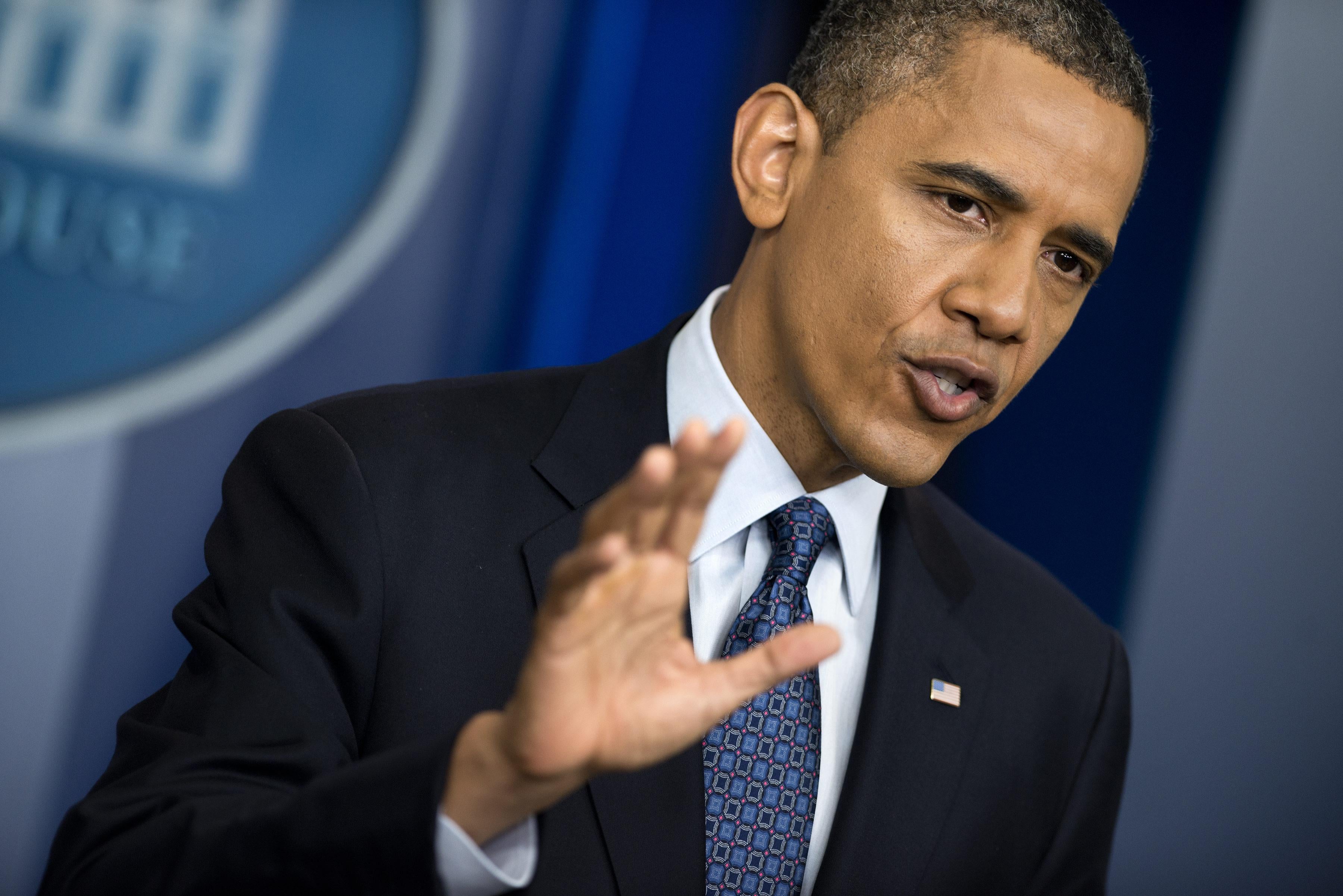The remarkable thing about President Obama’s economic press conference today, held one week after a terrible U.S. jobs report, is that he didn’t focus on the U.S. economy. He talked about Europe, Asia, and a global malaise. He came before the press not as a national CEO with a bad balance sheet to explain, but as a lecturer to nations whose economic policies showed a failure to learn from his successful example.
Obama began with his usual talking point: The economy was so bad when he became president that everything since then counts as progress. Actually, he measures progress from when we touched bottom: We’ve gained 4 million jobs since we stopped losing jobs, and we’ve posted net job increases for 27 months since we stopped posting net job losses. To these low benchmarks, Obama added another: “Job growth in this recovery has been stronger than in the one following the last recession a decade ago.”
The job increases have been anemic, and last Friday’s report showed the unemployment rate rising. But today, Obama offered an answer for that shortcoming: Compared with the recovery of a decade ago, “the global aftershocks are much greater.” This became the theme of the press conference: Obama actually led us out of the U.S. recession two years ago, and what we’re suffering now are side effects from Europe’s failure to emulate his wisdom. “Aftershocks” was the first metaphor he deployed to make this point. “Headwinds” was the second.
“Europe is our largest trading partner,” Obama observed. “If there’s less demand for our products” there, “it could mean less business for manufacturers” here. “These decisions are fundamentally in the hands of Europe’s leaders,” he said, in a tone that conveyed respectful deference but also shifted blame. “The decisions required are tough, but Europe has the capacity to make them.”
To be fair, Obama didn’t blame Europe entirely. He blamed Asia, too. He cited “weakness in the world economy, not just in Europe but also some softening in Asia.”
Does the United States bear any culpability for its economic difficulties? Sure, said Obama. And that culpability lies in Congress. Obama brought up the jobs bill he sent to Congress last fall. He said we’d have more jobs than we have today if Congress had passed the whole bill, instead of just parts of it. He pointed out that private-sector jobs are increasing while public-sector jobs are shrinking, and he blamed Congress for refusing to fund more public-sector jobs. This equation conveniently obscured the alternative viewpoint: that sustainable economic growth requires a better rate of private-sector job growth, and that public-sector employment shouldn’t be expected to continue making up the difference.
In the Q&A after his opening remarks, Obama returned to the theme of global sickness, headwinds, and aftershocks. He argued that “Europe’s our largest trading partner” and that “if Europe goes into a recession, that means we’re selling fewer goods, fewer services, and that is going to have some impact on the pace of our recovery. … This is a global economy now. And what happens anywhere in the world can have an impact here in the United States.”
But Obama didn’t just play the victim. He played doctor. He counseled Greece, Germany, and Spain. He urged Europeans to stabilize their banks, focus on growth, and gradually balance their books. He argued that the capital requirements he imposed on U.S. banks after the 2008 economic crisis would allow our financial system to “absorb some of the shocks that might come from across the Atlantic.” And he encouraged Europe to adopt similar policies. “What we’ve tried to do,” he concluded, “is to be constructive, to not frame this as us scolding them or telling them what to do, but to give them advice in part based on our experiences here in having stabilized a financial situation effectively.”
This seems to be the core of Obama’s political response to the faltering recovery. If he deflects blame in a passive way, pleading helplessness in the face of global stagnation, he’ll lose. But if he deflects blame actively, by posing as a doctor to other countries who failed to follow his example—and whose consequent economic sickness is now reinfecting the United States—he looks more like a leader.
Will it work? Maybe. I can think of two presidents who tried to answer a bad economy by running for re-election as leader of the free world. One was George W. Bush. The other was his dad.
